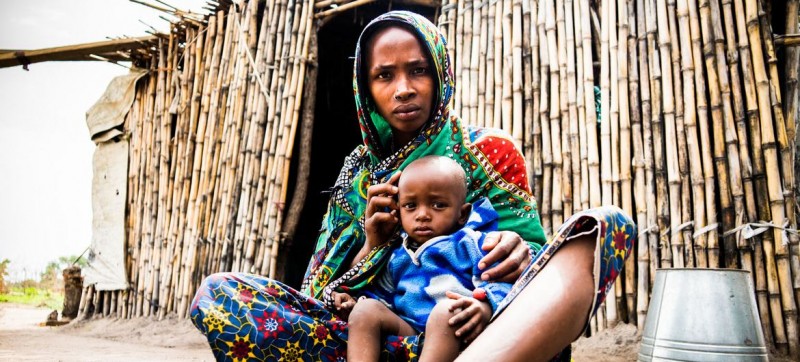Central African Republic returnees live at a site in Djako, in Southern Chad, where the level of severe acute malnutrition is particularly high. The United Nations humanitarian agency (OCHA) warned on Friday that at nearly $34 billion, the funding shortfall for aid operations is the biggest it’s ever been. The news comes at a time when global needs are at an all-time high, with a record 303 million people in crisis worldwide. “UN appeals aim to reach 204 million of the most vulnerable. Never before have humanitarians been called to respond to this level of need and they are doing so in ever more dangerous environments,” said OCHA spokesperson Jens Laerke.
‘Largest gap’ in funding needs
The cost of UN-coordinated relief projects this year are close to $50 billion dollars.
Although financing pledges have reached their highest level ever– totaling more than $15 billion – needs are outpacing funds.
“This is the largest gap we’ve ever had. However, it is also the largest amount of donor funding that has ever been committed,” Mr. Laerke pointed out.
“So, the problem is the following: that the needs in the world are rising much, much faster than the donor funding is coming in”.
140 aid workers killed in 2021
According to data from the non-governmental organization Humanitarian Outcomes, with which the UN partners annually to highlight these statistics, more than 140 aid workers were killed in the line of duty last year – the highest number of fatalities since 2013.
All but two of the aid workers who died were national staff, “highlighting the perils that national aid workers often face,” said Mr. Laerke, who added that another 203 aid workers were injured and 117 kidnapped last year.
The OCHA spokesperson explained that “the most violent countries for aid workers continue to be South Sudan, followed by Afghanistan and Syria.” According to Humanitarian Outcomes, 168 aid workers have been attacked so far this year, leading to 44 fatalities. “Most of the over 140 fatalities in 2021 were killed by small weapons and shooting incidents, with the second highest cause of death being airstrikes and shelling, most of them in Syria,” said Mr. Laerke.
World Humanitarian Day
Meanwhile, to mark World Humanitarian Day, commemorated annually on 19 August, Martin Griffiths, the UN Emergency Relief Coordinator and Under-Secretary-General for Humanitarian Affairs issued a statement paying tribute to “all humanitarian workers who often work in dangerous conditions to help others in need” while commemorating “those who have lost their lives in the line of duty”.
In the lead-up to the day, OCHA has launched a week-long campaign to honour humanitarian workers under the theme “It takes a village,” which spotlights how aid workers come together in a collective effort to alleviate extreme need.
“Just like the saying ‘It takes a village to raise a child,’ it takes a ‘village’ of humanitarians working with affected communities to bring help and hope to people caught up in crises,” said the OCHA chief.
“This year’s World Humanitarian Day builds on this metaphor of collective endeavour and asks people everywhere to show appreciation for humanitarian work, whoever carries it out”.
The public are invited to follow the #ItTakesAVillage hashtag on social media, to share, like and comment on the posting, to show solidarity with people who need aid and appreciation for those who work to deliver it.
About World Humanitarian Day
The UN General Assembly designated the annual event in 2008 to commemorate the anniversary of the 2003 bombing of the UN headquarters in Baghdad, Iraq, which killed 22 aid workers.
The day has evolved to highlight different aspects of humanitarian action and mobilize people globally to advocate for the broader humanitarian cause.




Comments are closed.